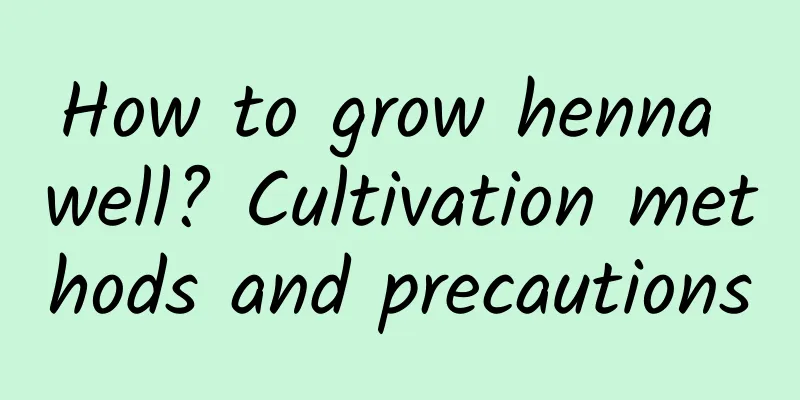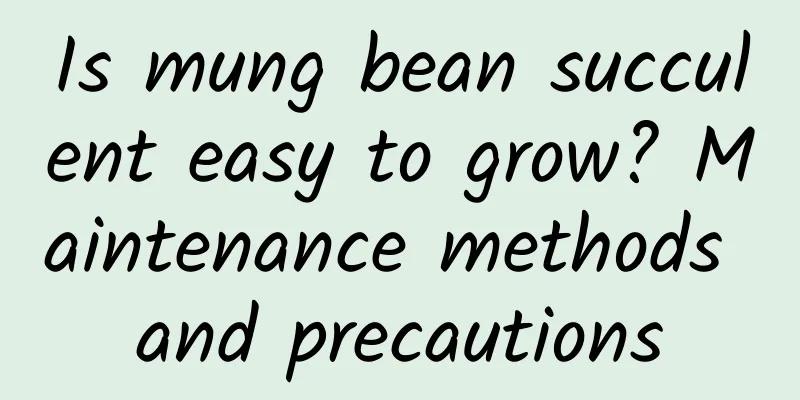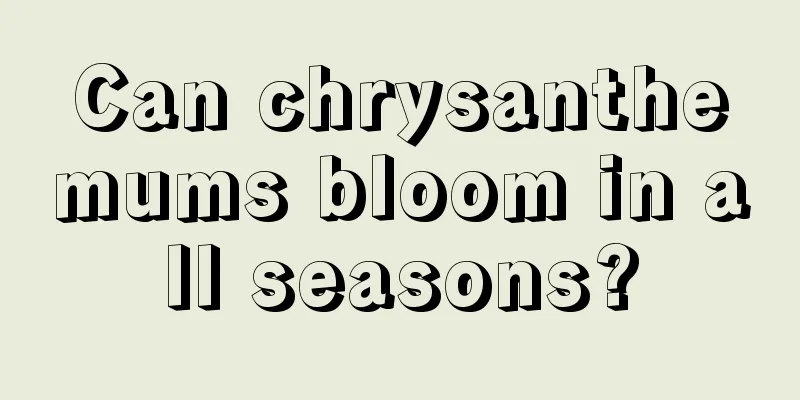How to grow henna well? Cultivation methods and precautions

|
Henna is a common ornamental flower and also a medicinal material. To cultivate henna, you need to fertilize it properly and water it when the soil is dry. There should not be any accumulation of water in the pot soil and you need to pay attention to ventilation. Summer is the flowering period of henna and it is necessary to avoid direct sunlight and spray the plant with water when the air is dry. If you do these things, the henna will grow very well. Key points of henna cultivationThe ideal growing environment temperature for henna is around 20 degrees. The temperature difference between day and night should not be too large. Too large a temperature difference will affect the differentiation of flower buds and the development of branches and leaves. Choose an area with sufficient sunlight, moist soil, and fertile soil. You can put some tiles at the bottom of the pot to prevent soil loss. The seeds are sown in March and April in spring. In the south, they can be sown directly in the open air, while in the north, the temperature is relatively low and they need to be sown in a greenhouse. The seedlings can be transplanted in about a month. Fertilizers should be applied after the seedling period. You can water them with some fermented rice water. Generally, fertilizers should be applied once a week to promote plant growth. Henna maintenance pointsHenna has high requirements for temperature. In a low or high temperature environment, the amount of flowers will be greatly affected. It is best to maintain the temperature changes as long as it does not harm the plant. Loosen the soil and weed regularly. The shape of the plant also needs to be controlled. The main trunk cannot continue to grow upward, otherwise it will grow too tall. While removing weeds, you can also remove the old leaves under the stems, and shorten the tops appropriately. This will allow nutrients to be more fully utilized, allowing more side buds to grow, and making the plant more beautiful. |
<<: What can I do if the mountain tortoise does not germinate?
>>: Pepper seed germination method Pepper seedling raising technology and steps
Recommend
Maintenance tips for Dieffenbachia
Repotting Dieffenbachia Repotting is usually done...
Can peacock arrowroot be hydroponically cultivated? Hydroponics methods and precautions
Can peacock arrowroot be hydroponically cultivate...
Tips for watering elm bonsai
1. Tips for watering elm bonsai Water when the so...
How to grow loofah with high yield?
Luffa , a climbing plant originating from the tro...
The role of calla lily
The efficacy of calla lily Not only is the juice ...
How long does it take for roses to bloom? How long does it take for rose seedlings to bloom?
How long does it take for roses to bloom? Roses c...
Cultivation methods and precautions of white orchid
1. Soil It is recommended to use loose, fertile, ...
Outdoor management of roses in winter
1. Pruning Winter is the most dislike season for ...
What is the best month to plant black peanuts?
When to plant black peanuts Black peanuts are a v...
How to prune wisteria trees
When to prune wisteria trees Wisteria trees can b...
Causes and treatments of yellow leaves of Gypsophila paniculata
1. Strong light exposure 1. Reason: If the sunlig...
How to care for tiger skin plant in winter
Is Tiger Pilan afraid of cold? Tiger Piranha shou...
How to prune trumpet creeper
When to prune trumpet creeper It is best to prune...
The meaning of lily
1. Its flower language Its flower language is inn...
How to prune and shape the Fire Festival bonsai
Trimming 1. Heading and pinching If you want to p...









